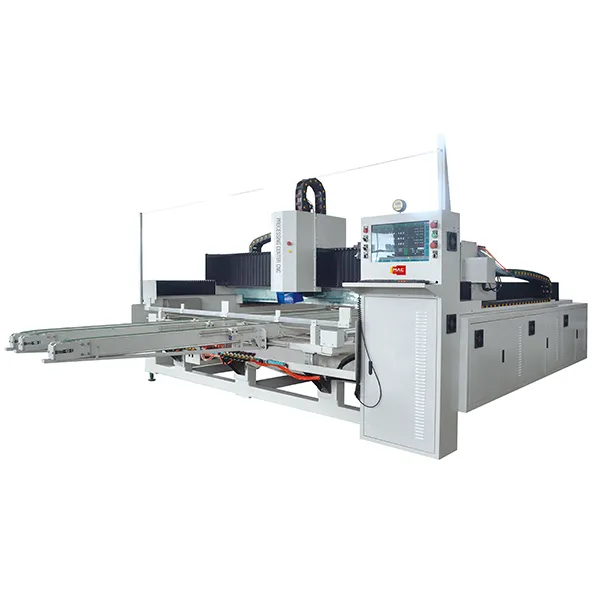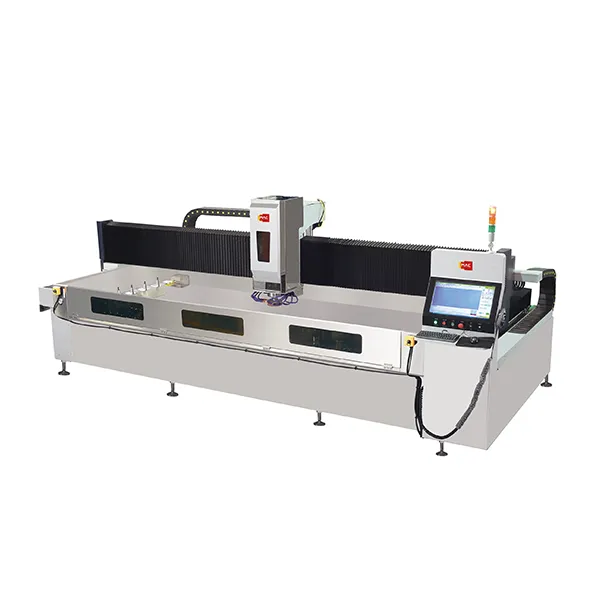Revolutionizing Fabrication with CNC Processing Centers
A CNC processing center is a cornerstone of modern manufacturing, offering precision, efficiency, and automation. By integrating computer numerical control (CNC) technology, these centers allow manufacturers to produce complex components with minimal manual intervention.
CNC processing centers are widely used across industries such as aerospace, automotive, electronics, and medical device fabrication. They ensure consistent product quality, reduce material waste, and enhance production speed. Investing in a reliable CNC processing center can dramatically improve a company’s manufacturing capabilities and competitiveness.
With a CNC processing center, operators can execute intricate designs that would be impossible or extremely time-consuming with traditional machining methods. This advanced technology empowers engineers and fabricators to meet the ever-increasing demands for precision and customization.
Key Functions of a CNC Processing Center
Precision Machining Capabilities
A CNC processing center provides exceptional accuracy in cutting, drilling, milling, and shaping materials. The computerized control ensures that every component adheres strictly to design specifications, reducing errors and rework.
By utilizing a CNC processing center, manufacturers can achieve tolerances often measured in microns, which is essential for high-tech industries where precision is non-negotiable.
Automated Tool Handling
Modern CNC processing centers are equipped with automatic tool changers, enabling seamless transitions between different cutting tools. This automation significantly reduces downtime and enhances workflow efficiency.
The ability to handle multiple tools without manual intervention ensures consistent machining quality and allows for complex operations that require various tools in a single production cycle.
Advantages in Modern Fabrication
Increased Production Efficiency
CNC processing centers optimize production by combining speed with precision. They can operate continuously with minimal supervision, allowing manufacturers to meet tight deadlines and high-volume demands.
Automation reduces human error and ensures uniformity across batches, which is particularly important for mass production of critical components.
Reduced Material Waste
The high accuracy of CNC processing centers minimizes excess material removal. Optimized tool paths and controlled cutting reduce scrap, saving costs and promoting sustainable manufacturing practices.
By using a CNC processing center, manufacturers not only improve profitability but also contribute to environmentally responsible production processes.

Integration with Advanced Manufacturing Technologies
CAD/CAM Software Compatibility
CNC processing centers are fully compatible with computer-aided design (CAD) and computer-aided manufacturing (CAM) software. Designers can create intricate 3D models and seamlessly convert them into machining instructions for the CNC processing center.
This integration eliminates manual programming errors and accelerates the transition from concept to finished product, enhancing the overall efficiency of the fabrication process.
IoT and Smart Manufacturing Integration
Modern CNC processing centers can be integrated with Internet of Things (IoT) platforms for real-time monitoring, predictive maintenance, and data analytics. This connectivity allows manufacturers to optimize machine performance and prevent unexpected downtime.
Smart CNC processing centers also enable centralized control of multiple machines, improving coordination in large-scale production environments.
Applications Across Various Industries
Aerospace and Automotive Manufacturing
CNC processing centers are essential in industries requiring high-precision components. In aerospace, they manufacture turbine blades, structural elements, and complex engine parts.
In the automotive sector, a CNC processing center produces engine components, chassis parts, and transmission elements with consistent accuracy. These machines ensure that safety and performance standards are met across the production line.
Medical Device Production
Medical devices demand exceptional precision and compliance with strict regulatory standards. CNC processing centers are used to fabricate surgical instruments, orthopedic implants, and prosthetic components.
The precision offered by CNC processing centers reduces risks associated with medical device failures and ensures high-quality outcomes for patients.
Electronics and Consumer Products
CNC processing centers also play a crucial role in electronics, producing components for circuit boards, connectors, and casings. In consumer product manufacturing, they enable detailed engraving, cutting, and assembly of intricate items.
The versatility of CNC processing centers allows manufacturers to maintain product quality while experimenting with innovative designs.
Selecting the Right CNC Processing Center
Considerations for Choosing a Machine
When selecting a CNC processing center, key factors include the machine’s size, axis configuration, spindle speed, tool capacity, and software compatibility. Manufacturers must evaluate production needs, material types, and component complexity to select the most suitable machine.
Choosing the right CNC processing center ensures maximum productivity, minimal errors, and long-term reliability.
Maintenance and Operational Efficiency
Proper maintenance is critical for sustaining the performance of a CNC processing center. Regular inspections, lubrication, and software updates prevent breakdowns and ensure optimal operation.
High-quality CNC processing centers are designed for durability and ease of maintenance, reducing downtime and extending the machine’s service life.
Enhancing Productivity with CNC Processing Centers
Workflow Optimization
A CNC processing center allows for automated workflows that streamline production processes. By scheduling operations efficiently, manufacturers can maximize machine utilization and reduce idle time.
Optimized workflows reduce lead times, increase output, and enable manufacturers to meet demanding production schedules consistently.
Training and Skilled Operation
While CNC processing centers are automated, skilled operators are essential to achieve maximum efficiency. Training staff on machine programming, troubleshooting, and maintenance ensures that the full capabilities of a CNC processing center are utilized.
Well-trained personnel can quickly adapt to design changes, optimize cutting paths, and maintain high production standards.
Technological Advancements in CNC Processing Centers
Multi-Axis Machining
Modern CNC processing centers often feature 5-axis or even 6-axis capabilities, allowing complex geometries to be machined in a single setup. Multi-axis machining reduces handling, improves accuracy, and enables fabrication of intricate components.
This advancement expands the range of possible applications and allows manufacturers to produce sophisticated parts that were previously impossible or cost-prohibitive.
Automation and Robotics Integration
CNC processing centers can be integrated with robotic arms for material handling, loading, and unloading. This integration further enhances production efficiency and reduces manual labor requirements.
Automation combined with a CNC processing center enables manufacturers to run continuous production with minimal supervision, optimizing throughput and cost-efficiency.
FAQ
How does a CNC processing center improve manufacturing precision?
A CNC processing center uses computer-controlled movements to execute precise machining operations, ensuring components meet exact specifications consistently.
Can a CNC processing center handle multiple materials?
Yes, modern CNC processing centers can work with metals, plastics, composites, and even wood, making them versatile tools for various industries.
What is the typical lifespan of a CNC processing center?
With proper maintenance, a high-quality CNC processing center can operate reliably for 10–15 years or longer, providing excellent long-term value.
Do CNC processing centers require specialized training to operate?
Yes, operators need training in programming, machine setup, and maintenance to fully utilize a CNC processing center’s capabilities and ensure safe, efficient operation.
Table of Contents
- Revolutionizing Fabrication with CNC Processing Centers
- Key Functions of a CNC Processing Center
- Advantages in Modern Fabrication
- Integration with Advanced Manufacturing Technologies
- Applications Across Various Industries
- Selecting the Right CNC Processing Center
- Enhancing Productivity with CNC Processing Centers
- Technological Advancements in CNC Processing Centers
- FAQ
 EN
EN
 AR
AR
 BG
BG
 HR
HR
 CS
CS
 DA
DA
 NL
NL
 FI
FI
 FR
FR
 DE
DE
 EL
EL
 HI
HI
 IT
IT
 JA
JA
 KO
KO
 PL
PL
 PT
PT
 RO
RO
 RU
RU
 ES
ES
 SV
SV
 TL
TL
 IW
IW
 LV
LV
 LT
LT
 SK
SK
 SL
SL
 UK
UK
 VI
VI
 ET
ET
 HU
HU
 MT
MT
 TH
TH
 TR
TR
 FA
FA
 MS
MS
 SW
SW
 GA
GA
 AZ
AZ
